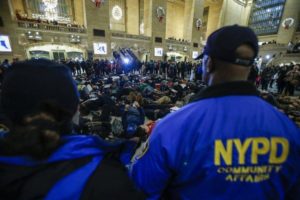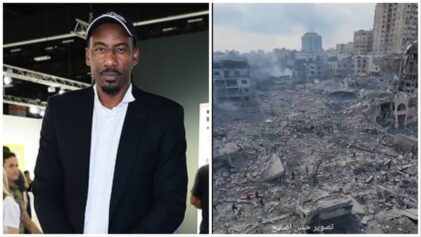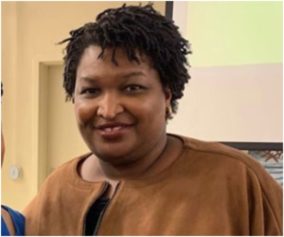
NYPD officers monitor a “die-in” at Grand Central Terminal in December 2014. Photo by EDUARDO MUNOZ ALVAREZ/AFP/GETTY IMAGES.
A group of New York activists has won access to the NYPD’s surveillance files on Black Lives Matter demonstrators at Grand Central Terminal between 2014 and 2015.
A Manhattan Supreme Court judge on Monday, Feb. 6, ordered the department to divulge all documents, video and audio recordings detailing its covert surveillance of Black Lives Matter protests at the terminal sparked by the police killings of Eric Garner in Staten Island, N.Y., and Michael Brown in Ferguson, Mo., the New York Daily News reported.
In May 2016, protester James Logue filed a suit against the police department after it denied his Freedom of Information Act request to view documents and other information on the NYPD’s undercover monitoring of BLM rallies. Logue’s attorney, David Thompson, said the local activist had a hunch the police were keeping tabs and “compiling dossiers” on attendees of the peaceful protests and ultimately decided to file his request.
The NYPD initially refused to give up the surveillance files, arguing that the disclosure of its tactics could potentially hinder its law enforcement work. Manhattan Supreme Court Justice Manuel Mendez saw things differently, however, and ruled that the police agency couldn’t refuse to adhere to the FOIA law on such “overly broad” grounds.
It should also be noted that FOIA requests granted by New York’s Metro Transit Authority and Metro-North revealed correspondence between authorities and the transit agencies regarding the BLM protests — even though the NYPD claimed it didn’t have such surveillance information, RT.com reported.
NYPD officials “make blanket assertions and fail to particularize or distinguish their surveillance or undercover techniques and records,” Mendez wrote in his decision, noting that the department had fallen short in proving why the use of retractions wouldn’t be enough to protect its ongoing investigative work, according to the New York Daily News.
The judge gave the department just 30 days to respond to Logue’s request. Local activists took to social media on Wednesday, Feb. 8, to celebrate and formally announce their victory over the NYPD.
“We won!” organizer Keegan Stephan tweeted excitedly to his followers.
https://twitter.com/KeeganNYC/status/829383201370025984?ref_src=twsrc%5Etfw
M.J. Williams, one of the records petitioners, was just as excited over Wednesday’s victory and expressed satisfaction with the judge’s decision to grant access to the documents.
“We are pleased that Justice Mendez rejected the NYPD’s arguments that government transparency makes the public unsafe,” Williams said in a statement. “The public is entitled to understand how and why the NYPD dedicates enormous resources to surveil not only activists but New Yorkers living out their daily lives.”
In their case, activists argued that the NYPD’s undercover monitoring could potentially be a violation of protesters’ First Amendment free speech rights and demanded the right to know the extent of the surveillance, Mic reported. The secret surveillance also could be a violation of the 1985 Handschu Agreement, which, according to RT.com, prohibits indiscriminate police videotaping and photographing of public gatherings unless there’s clear evidence of unlawful activity.
Now, activists are simply hoping that Justice Mendez’s ruling will serve as an authoritative example for other activists seeking police surveillance records.
“New York is a precedent setter across the country, in all respects, but especially for police,” Stephan said. “In this case, signaling that the police need to be transparent will hopefully have ramifications across the country.”


